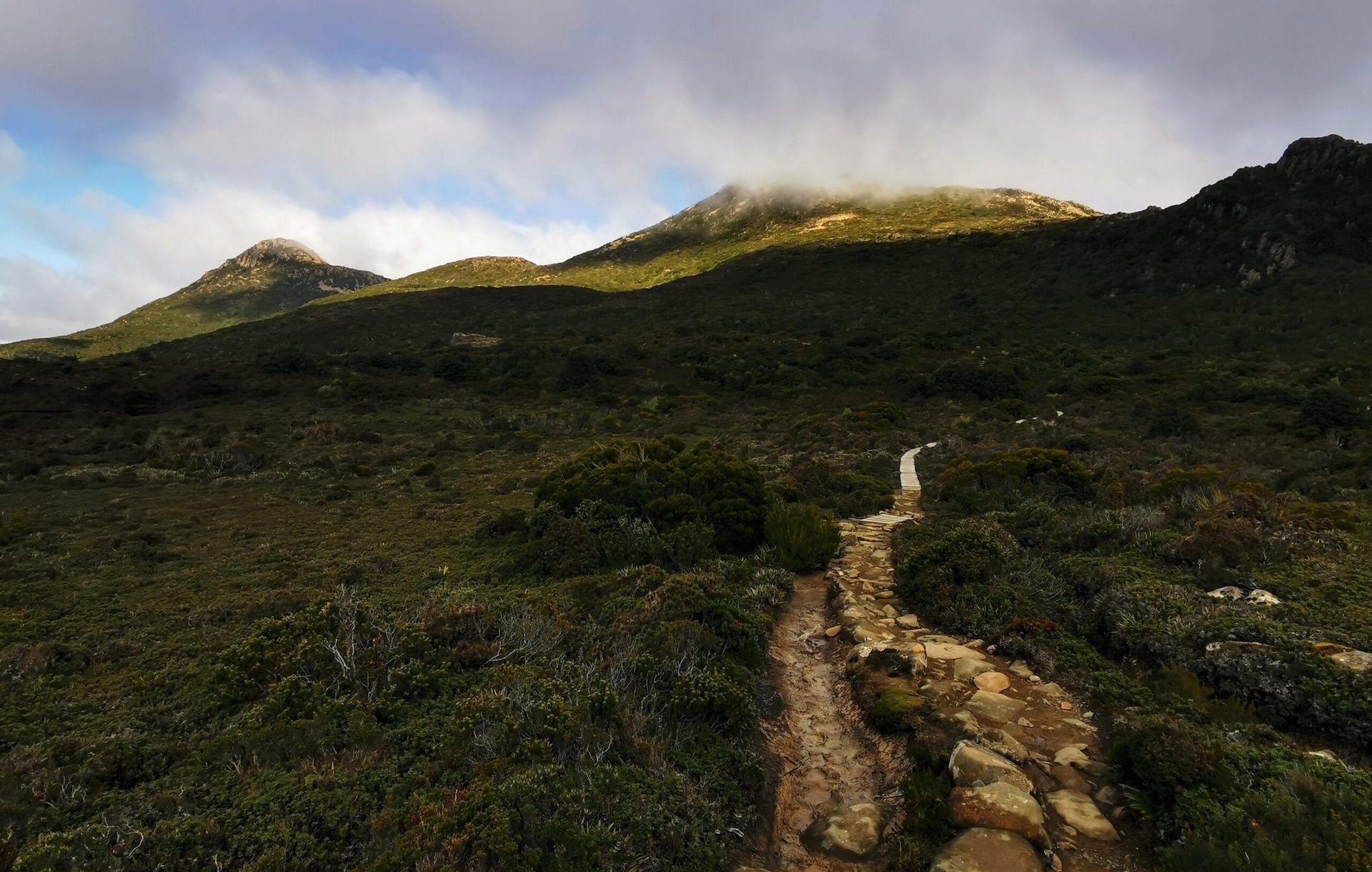
Blue-tongue
Romy Wenzel
‘Once upon a time,’ the hatchling began, her voice small enough to thread a mouse’s button-hole. ‘Once upon a time—’
‘No, no, no,’ her mother said, and the hatchling saw it coming—the blue cresting the tip of the mouth, hovering like a hare at a bolthole. By the time she cringed her ear was already singing with the smack.
‘Did I start it wrong?’ she asked, pawing at the wet place where her mother had hit her. She’d listened to a thousand and one stories in the big house, from hiding places between cracks in the walls, under the kitchen sink, and between the floorboards. But no matter how she turned the tale, she could never tell a story to satisfy her mother.
‘‘Once upon a time.’ Curse your scaly feet, that’s how the two-leggeds tell their senseless tales. Get your feet in the soil, child: earth-bellied start stories with “Once upon a stone, a sea, a spring meadow, a fish’s back.” Start with a place.’ Her mother squinted her beetle black eyes. They glinted with the Otherworld in the sun. ‘‘Once upon a time.’ Honestly! Time is made up. You’d know that well enough if you kept away from the big house. I wonder what else you’ve picked up from that damned place. If you think to put the hero in the middle of everything, you had better not try that with me. No creatures, no heroes. Place must come first.’
Once upon a time, there was a lizard. An earth-bellied lizard with a heart so new it flickered through the skin, like something trying to get out.
‘Once upon a willow, there was a deep hole between roots, so very deep it reached right to the Underworld, where everything is topsy-turvy and the dead walk. No blood runs in the veins of the dead, nor water through their roots. They’re crisp and gnarled as autumn leaves down there, and float about with no floor to walk on nor feet to bind them. The dead whisper messages to the land above, and the earth-bellied listen.’
‘Better,’ her mother interrupted. ‘All true. But tell me more about these whispers. What do they say? No quests for gold, or power, or princesses, I beg you. None of that nonsense. The dead only whisper when they are disturbed, and the world is out of balance.’
The hatchling took a deep breath, and continued.
‘At first the earth-bellied creatures could not understand the language of the dead. They spoke in the language of the soil and the clay. But the dead kept speaking, and the earth-bellied things kept listening. The rumbling below ground was as subtle and pleasant to listen to as snails’ feet rippling across the grass from the larkspurs to the lupins. The earth-bellied pressed their stomachs so hard against the grass, the grass puckered and browned off in the shapes of snakes and frogs. Then, one day, one of the more restless dead things, curious about where its messages were landing, reached out a little further to the listener on the other side, bridging two worlds. And out of the earth pushed a mushroom.
‘It was a lizard that took the first nibble of the white thing, haunted with the bluish glow of the dead. Perhaps it was hungry, or too curious for its own good. That lizard had eyes sharp and quick as any other, but when it took the second bite of the mushroom, the world drifted to the left, and the sky began to spiral, and shadows were revealed that had not been there before in teal and gold. The belly of the lizard began to twist and gurgle, the blue glow of the mushroom crept up the lizard’s throat and down the spine of its tongue, and the voices of the dead became as clear as morning dew.’
Once upon a time there was a flood, a heatwave, an ice-age, a plague, an extinction.
‘These voices, you have heard them yourself?’ asked the lizard-mother. The hatchling paused, and nodded.
‘Good,’ said the lizard-mother. ‘That is your first job, to hear them. Do you understand them yet?’
‘No,’ said the little one. ‘But Spotted-head does, and Three-tail.’
‘They’re a little ahead of you,’ said lizard-mother. ‘They cracked their eggs first.’
The hatchling pressed her belly to the earth, and quivered with the prickling sensation there as if she would take up the voices through her yolk-nub, still lingering on her acorn-coloured belly. ‘I want to understand them now.’
There it was, again, the blue flash surging from the black cave of her mother’s throat, thumping her over the ear, harder than the first time. The smack sang in her ear like a mosquito.
‘You must not be too eager,’ said lizard-mother. ‘Language cannot be owned, or taken. The understanding comes in stillness, when you just are. Then you will not just hear the words of the dead, you will know them.
‘But it is not your job to heal what is broken, little one. You are only the messenger. It is an important job, nevertheless. We do not shape the world, but must get out of the way of the world shaping itself. There are those that are too far from the earth to feel the hum of the dead below it. You must tell their stories to any who will hear them. You must tell those stories to the furred and finned and feathered things.’
‘But I do not speak swallowtail, or bear, or fish. I only speak lizard.’
‘When you know the language of the dead, you will find ways to tell it. You will leave it in your footprints, in the dance of your hips across a field. You will write the stories of the dead in your scents and scats and your tongue will grow as long and blue as mine. The art of translation is written into your scales; it is what you are made for, little one.’
‘What about the two-leggeds?’ asked the lizard-child. ‘Are we messengers for them, too?’
‘Humans are the very worst at listening. Their heads are stuffed thick with their invented troubles. The quiet ones might catch snippets when the messages are thrust upon them—a striped prism in the sky, a blue moon, or a meeting of owls. But the best time to go to the big house is at night, when they are sleeping, when their arrogance softens, and you can slip things into their dreams.’
Once upon a time, there was a terrible noise. The draining of oceans and the falling of forests and the crunching of bones. The noise was followed by a great stillness, quiet enough to hear the voices of things that dwelled far below the earth’s crust.
‘I will try, Mother.’
‘Pass on the knowledge of the dead, my child. That is the role of the earth-bellied things. We are the messengers of the dead,’ said lizard-mother. ‘You must practice every day if your tongue is to become long and blue as mine.’
The hatchling traced the line of her mouth with her tongue, as if testing her developing tool. Her mother smiled. Finally, she is getting it. Finally, she is learning to listen.
The hatching smiled back. She had only been imagining the day when her tongue was long enough to smack her mother back.
Once upon a time, there was an end that was also a beginning.
Romy Wenzel is a writer and artist on Melukerdee country, Tasmania, exploring mythology and ecology from an animist perspective. Recent publications include short stories in Dark Mountain, Cunning Folk and Folklore for Resistance. Instagram @the_quiet_wilds
